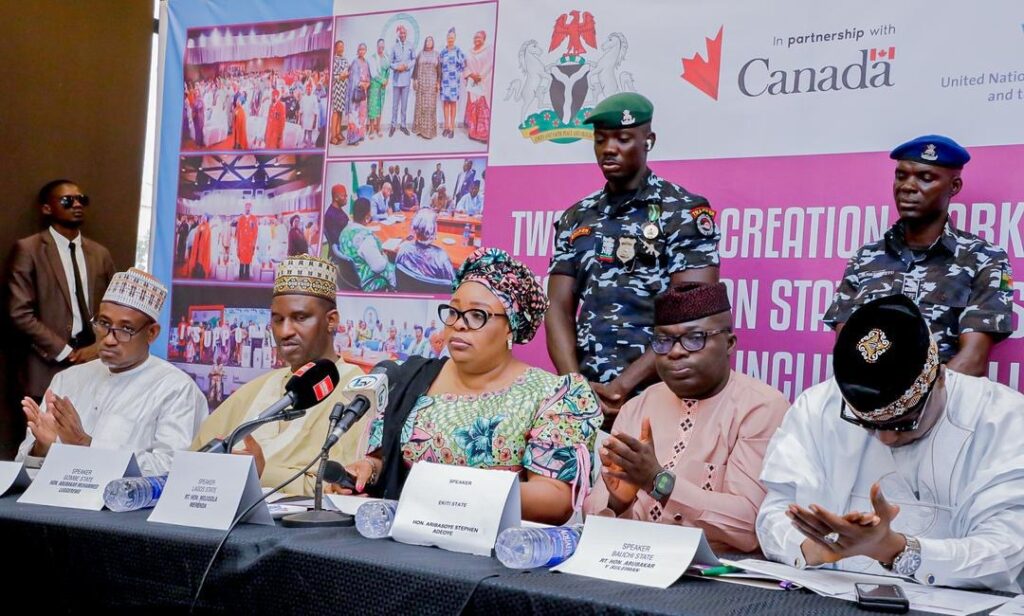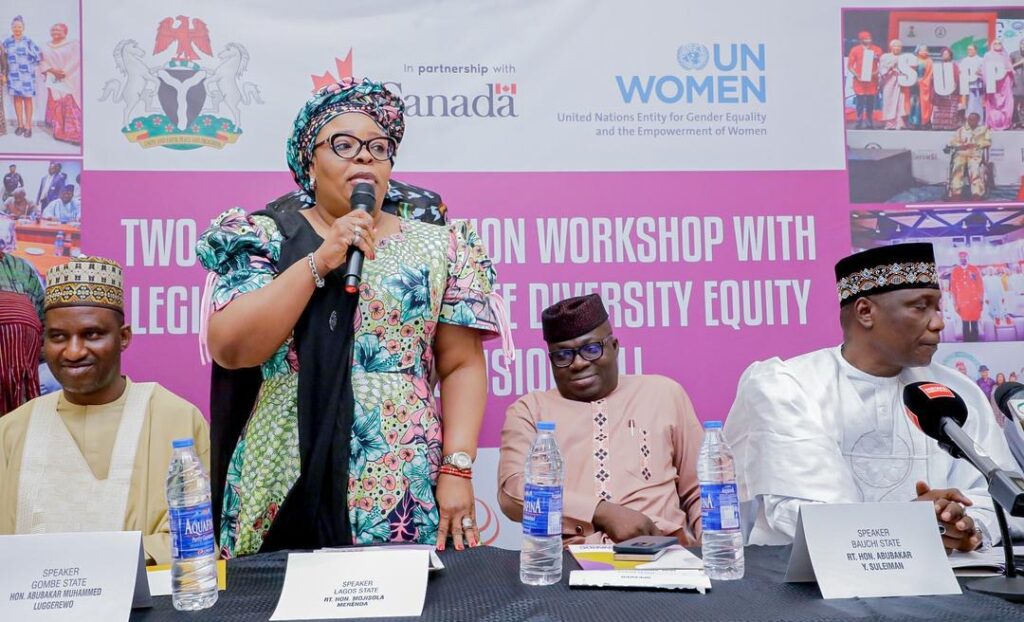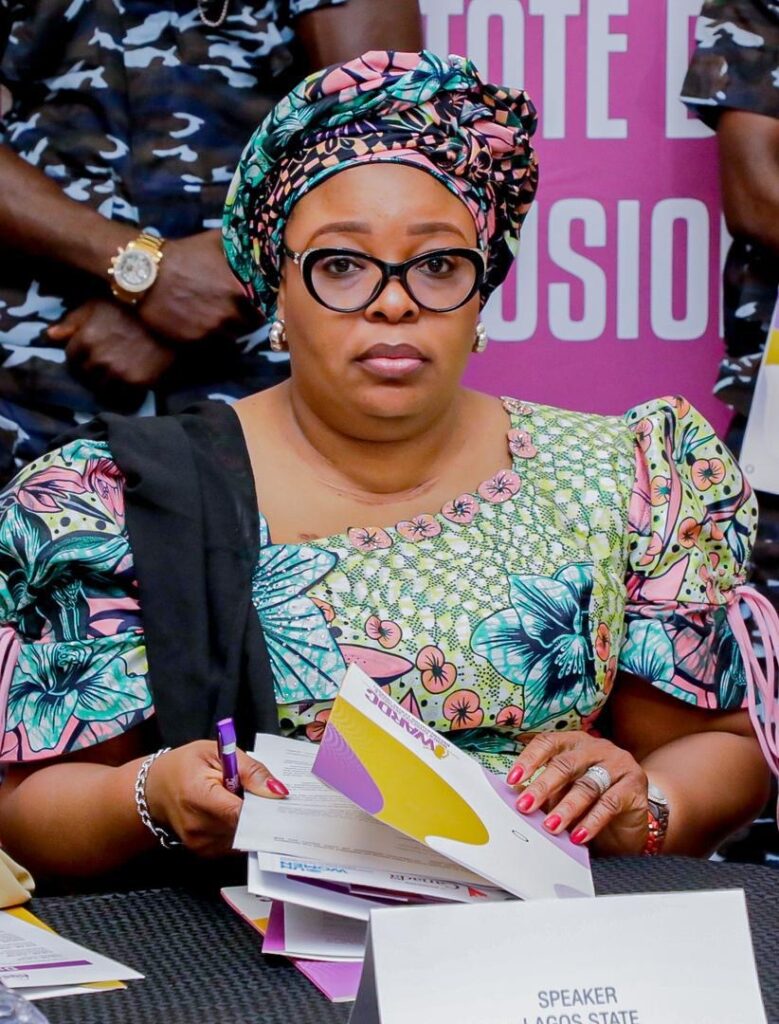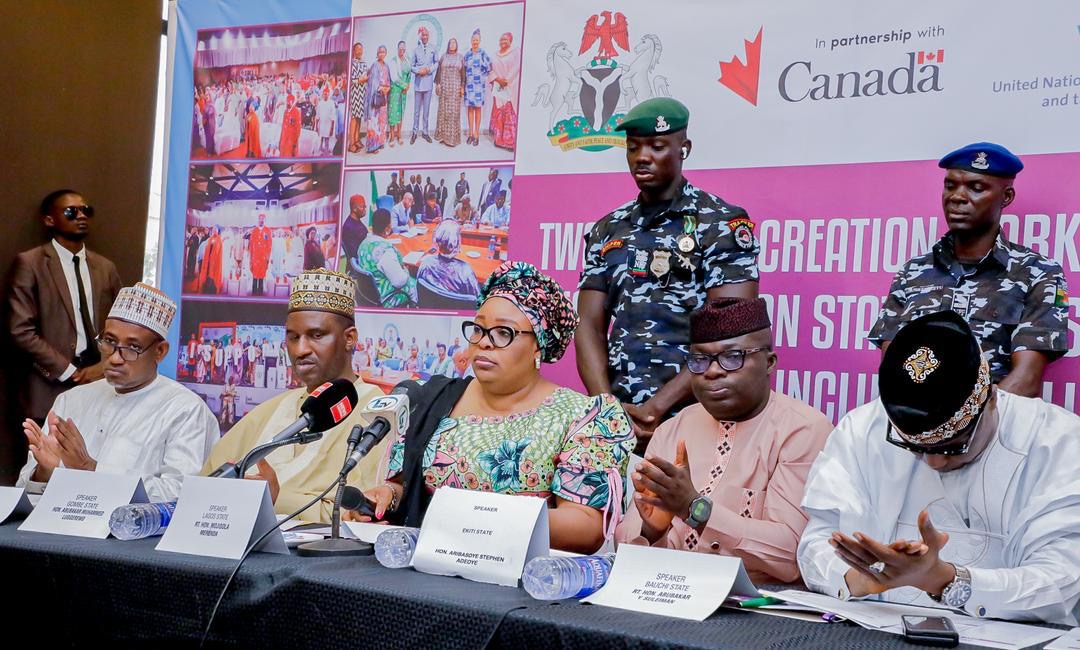The Lagos State House of Assembly has expressed its committment to support legislative frameworks that will align with the principles of equity and inclusion in the society.

Rt. Hon Mojisola Lasbat Meranda, Speaker of the Lagos State House of Assembly, made the pledge on Friday, while delivering a special remark at the Women Advocates Research & Documentation Centre, WARDC Cocreation workshop, which held at the Protea Hotel in Lagos.
Meranda said the workshop will shape an instrument that will serve as a moral compass for the society.
“Today, we are shaping a transformative instrument that will serve as a moral compass for our society—a bill that seeks to address and dismantle systemic inequalities that have long excluded vulnerable groups,” the speaker stated.

She described the workshop as a significant milestone in Nigeria’s collective journey towards “fostering a more just, equitable, and inclusive governance structure across all states of the federation.”
According to her, despite Nigeria’s being Africa’s most populous nation and largest economy,with rich diversity and over 250 ethnic groups, the diversity has not always translated into equity and inclusion.
She said: “Nigeria, as Africa’s most populous nation and largest economy, is rich in diversity. With over 250 ethnic groups, multiple religions, and a wide socio-economic spectrum, our country is a true reflection of multiculturalism. However, this diversity has not always translated into equity and inclusion.

“Marginalized groups, including women, low-income individuals, persons with disabilities, and ethnic minorities, continue to face systemic barriers that restrict their access to opportunities, resources, and representation. Women, for instance, are significantly underrepresented in political leadership and decision-making roles, holding only a small fraction of elective positions. Similarly, persons with disabilities encounter immense challenges in education, employment, and access to public services.
“Gender inequality remains a pressing issue. According to the World Economic Forum’s Global Gender Gap Report 2024, Nigeria ranks 125th out of 146 countries in gender parity, particularly in economic participation and political empowerment. These statistics underscore the urgency for legislative intervention and policy transformation.
“Moreover, individuals in rural areas, urban slums, and economically disadvantaged communities struggle daily to access basic amenities and economic opportunities. These challenges demand immediate attention, as no nation can achieve true progress while leaving a significant portion of its population behind.
As a way forward, she urged training and financial support for women, youth, and persons with disabilities in order to empower them to participate in the economy.
She disclosed that the Lagos State Legislature has taken proactive steps to champion the inclusion and diversity through progressive legislation and advocacy.
